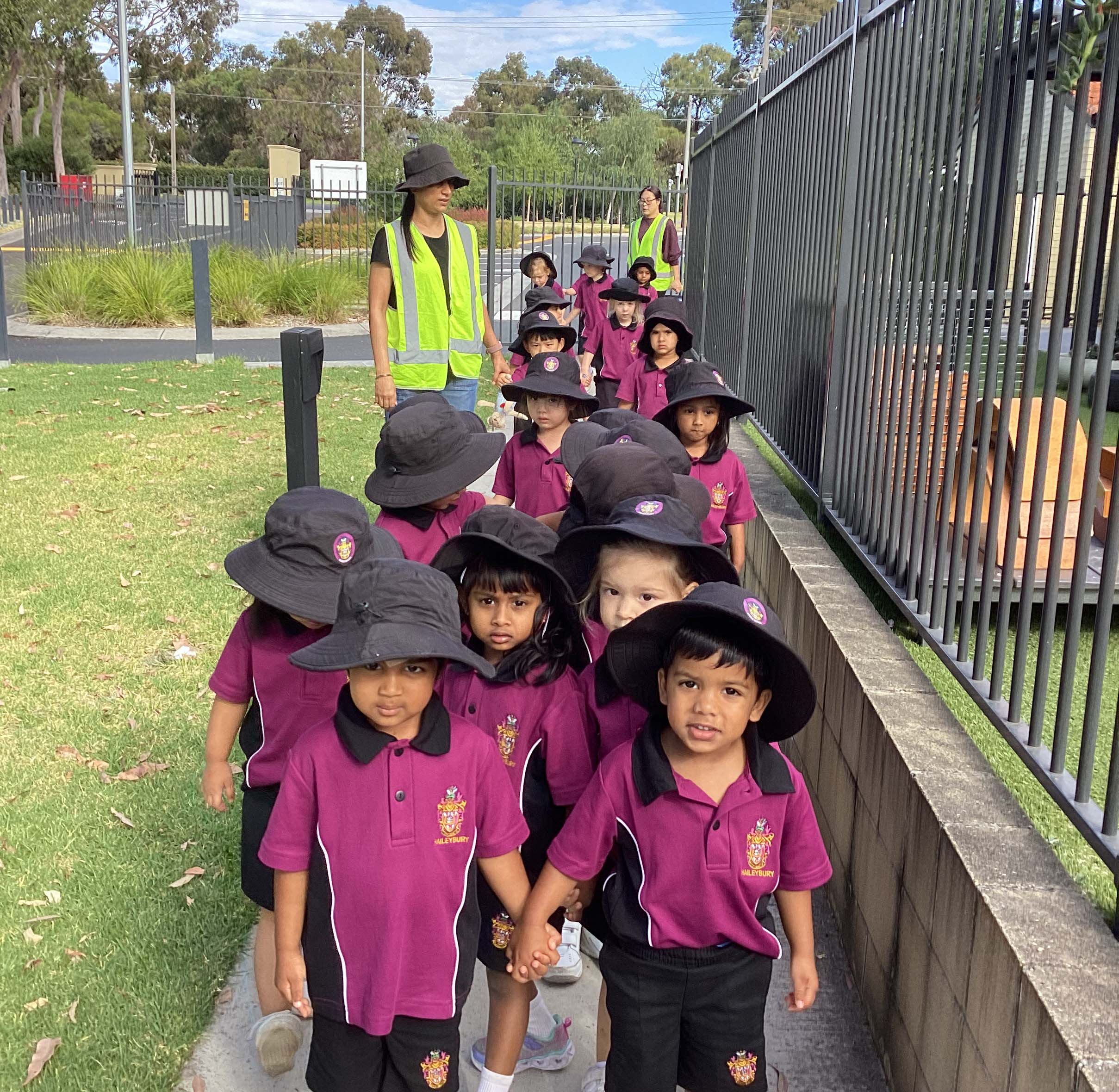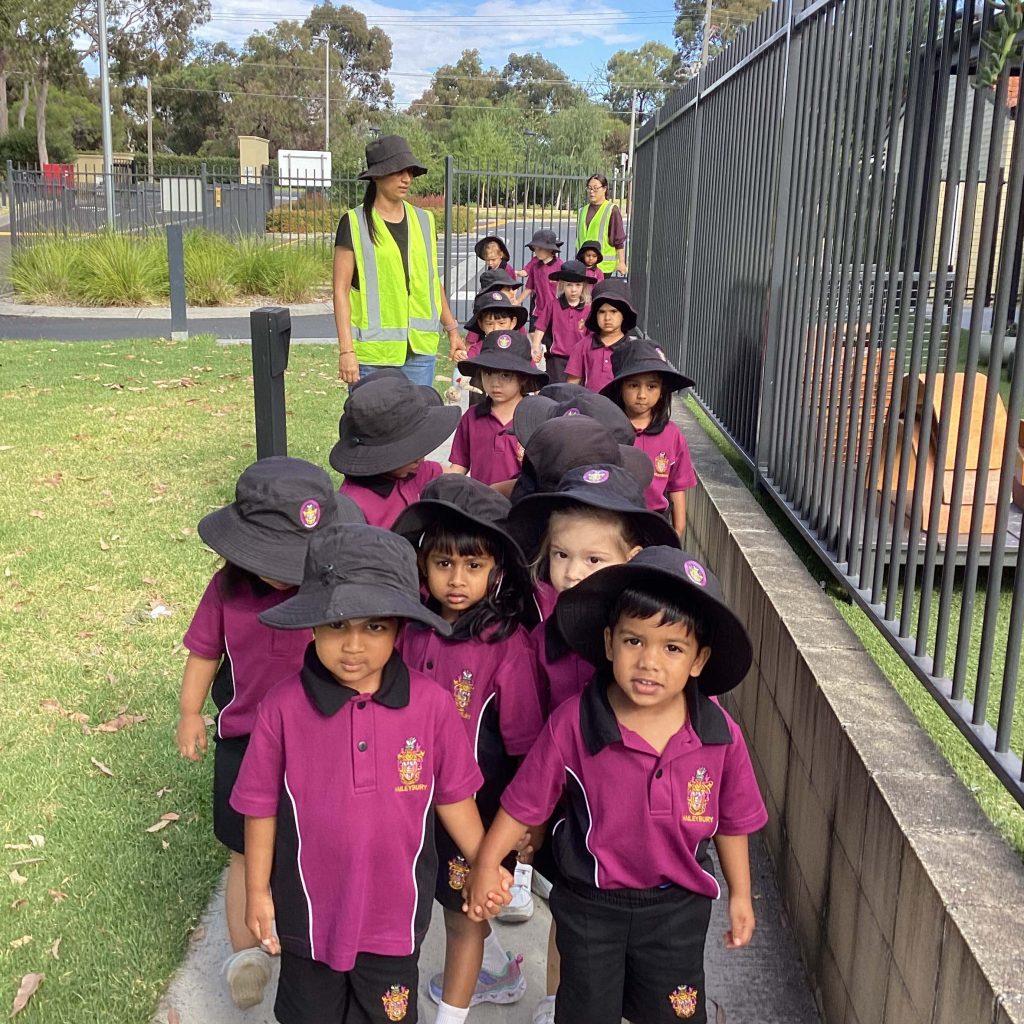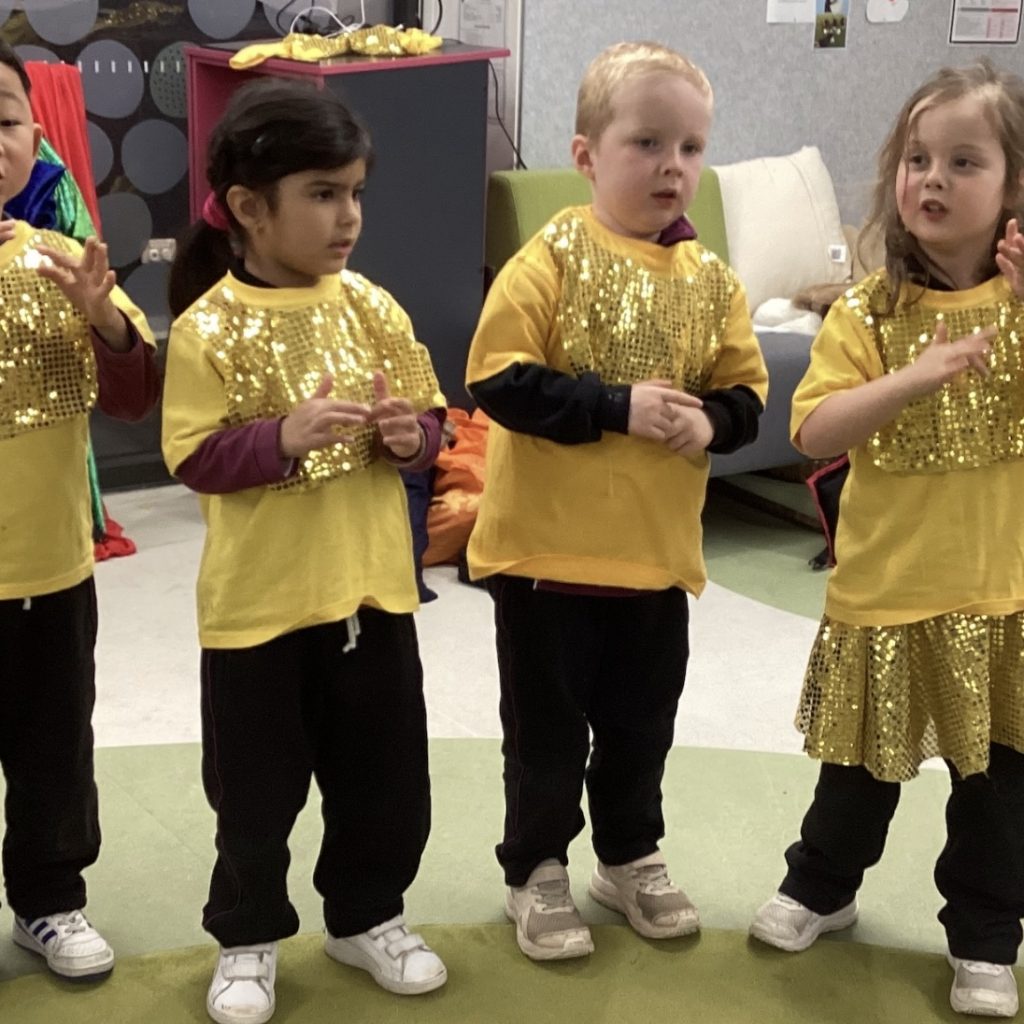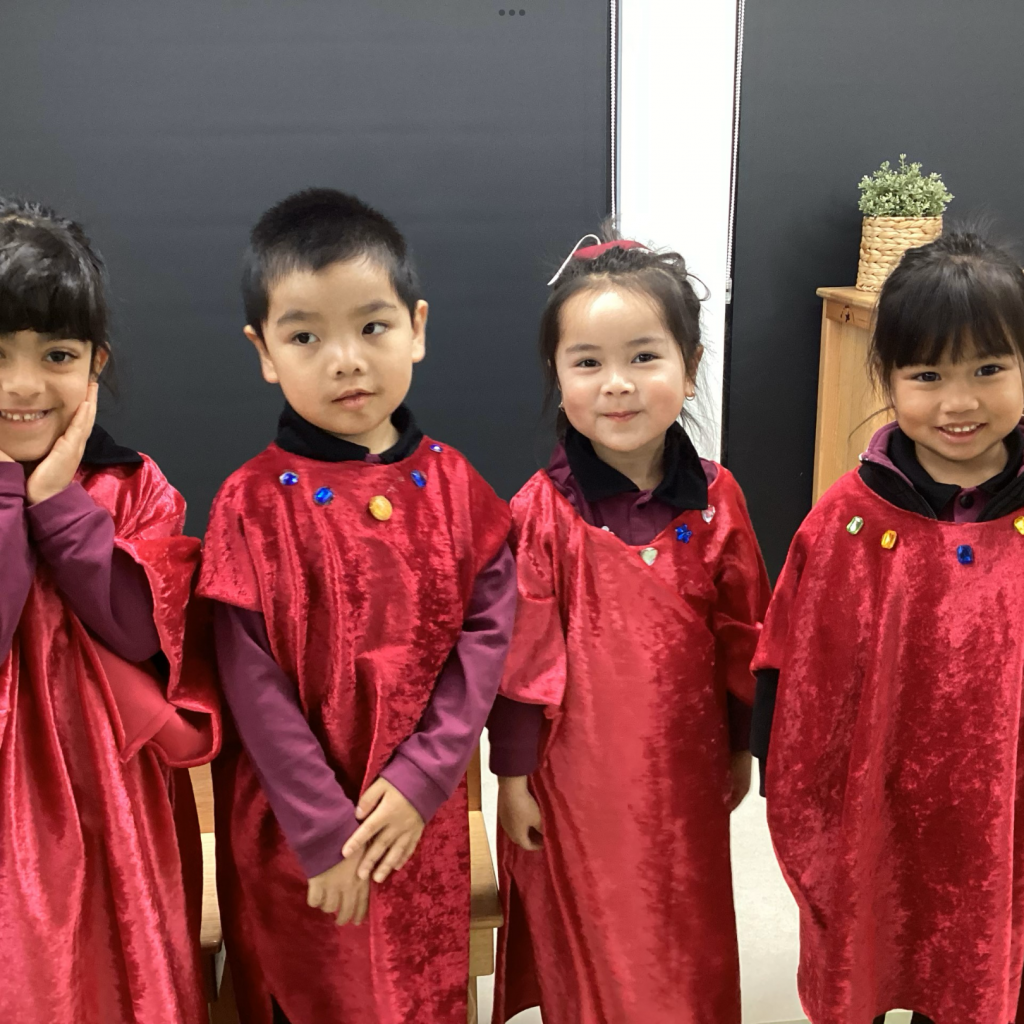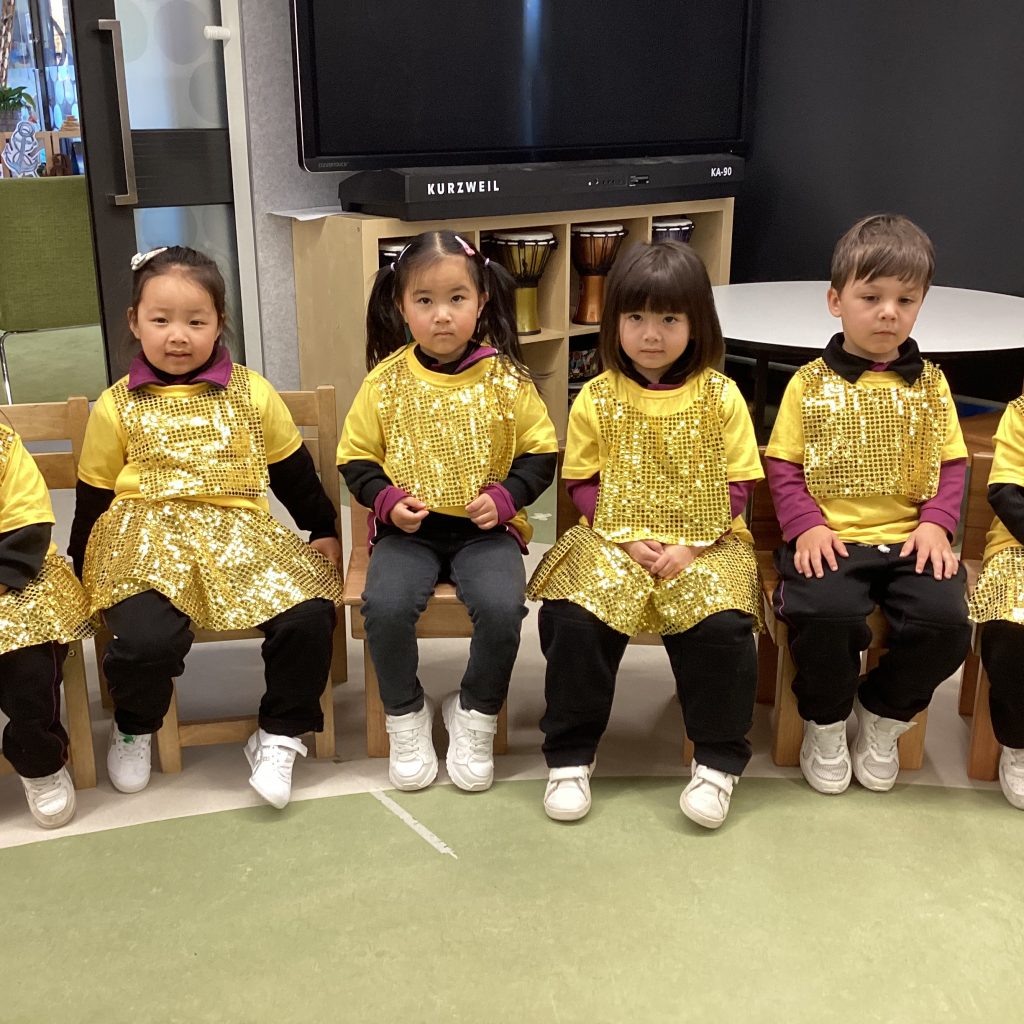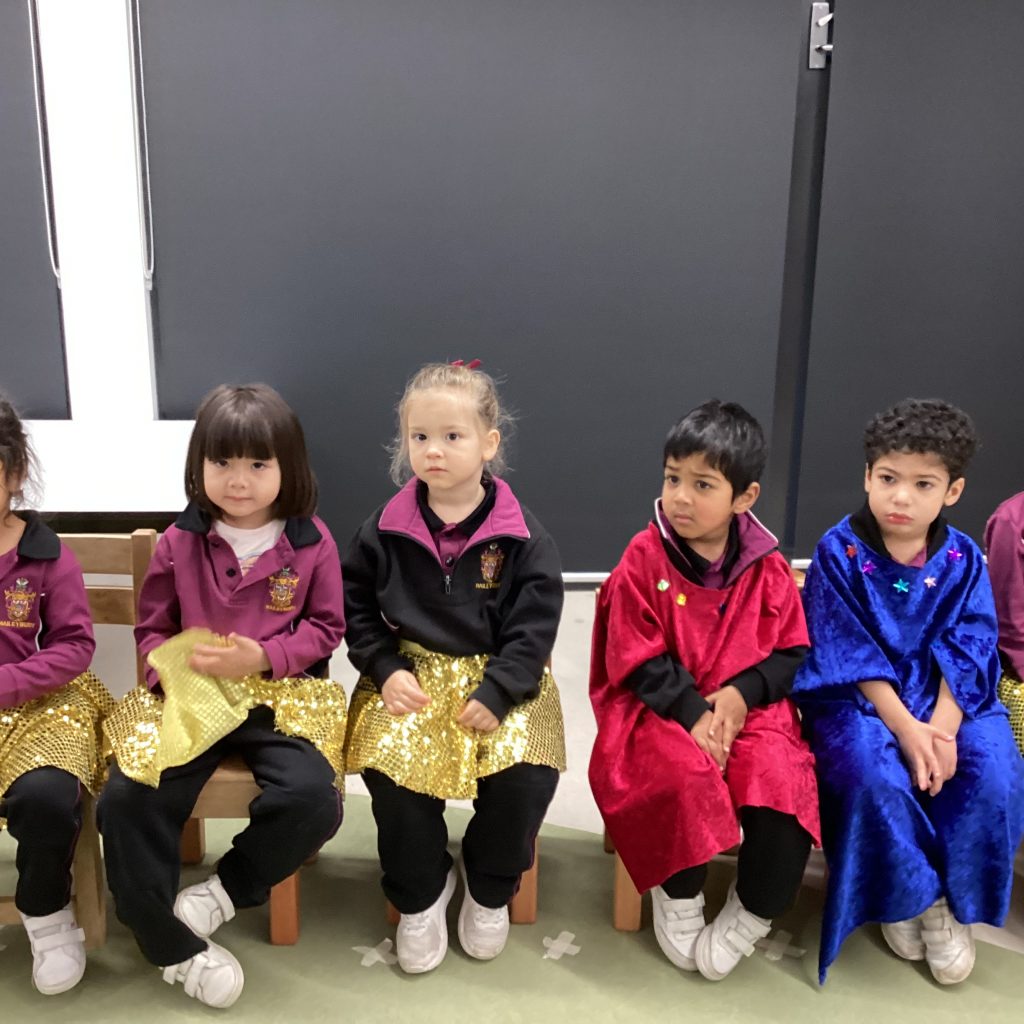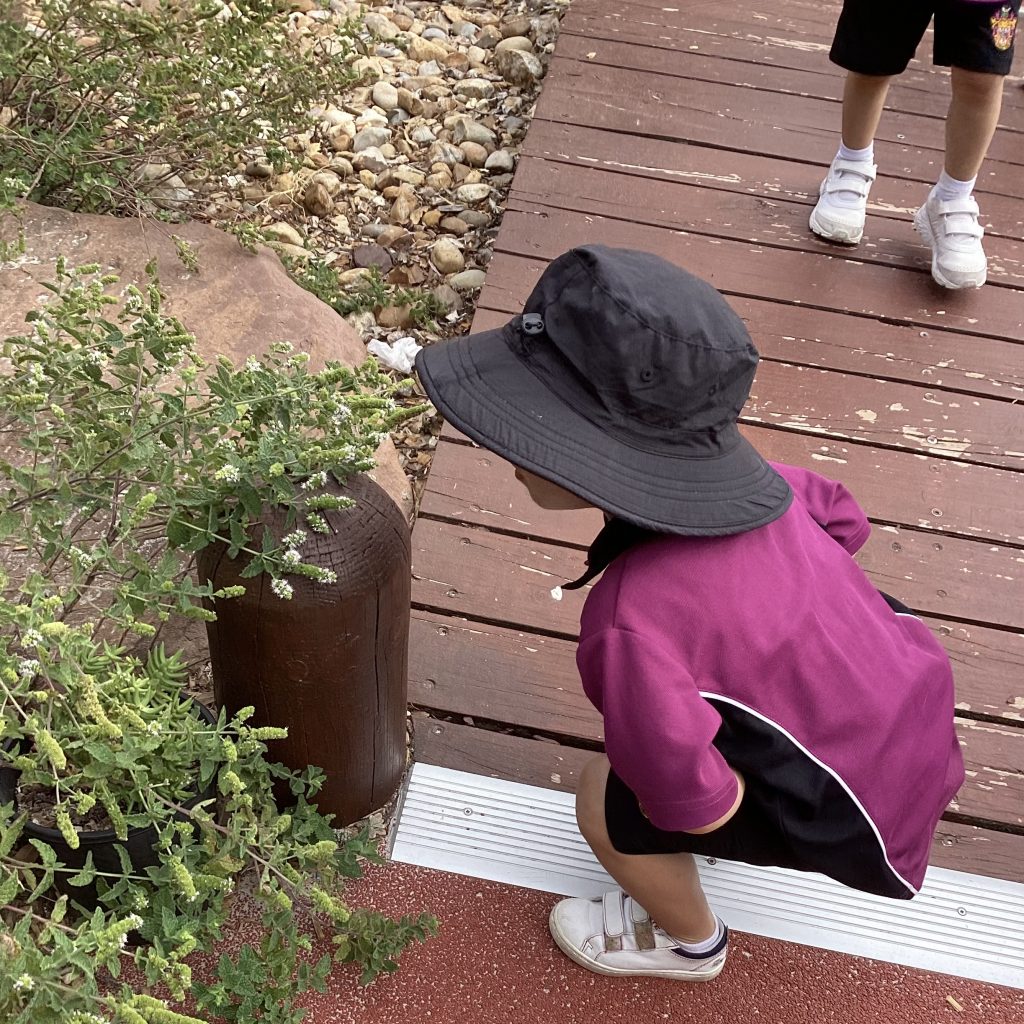How bees inspired learning at the ELC
At Haileybury’s Early Learning Centre (ELC), children experience a wide array of learning opportunities throughout the year, often driven by their curiosity. This emergent curriculum allows students to explore topics that interest them. This year, a simple observation of bees sparked questions that led to an exploration of the vital role bees play in our environment.
It all began when the children noticed bees busily working around the gardens. Their natural curiosity led to discussions about bees — where they live, what they do, and why they are so important. Eager to find out more, the children set out on a bee hunt, crafting theories about where they might find bees around the expansive Keysborough grounds. The adventure quickly revealed a fun fact: bees don’t seem to enjoy playgrounds, as they were never spotted on the slide or swings!
What they did notice, was that the bees really liked being around flowers. This realisation helped to start a conversation about flower pollination and how it is essential to sustaining our natural environment. Bee pollination helps plants reproduce by carrying pollen from one flower to another. Without bees, many of the foods we eat — like fruits and vegetables — would not grow as well, leading to a drop in food production. If we did not have bees, we could lose important plants and food, which would hurt both the environment and us.
These discussions naturally evolved into a focus on the role of bee hives, and the ELC was able to tap into the unique resources available to them through Haileybury Hive.
The Haileybury Hive program, based at Newlands, consists of active hives managed by Middle School students and dedicated Hive Coordinators. The children were able to visit the hives, observe how bees work and learn how to maintain hive health. These experiences gave them a first-hand look at the importance of supporting bees and their habitats. The students even discussed ideas like creating ‘bee corridors’ (a series of connected green spaces, like gardens, parks, or wildflower areas) and planting flowers that encourage pollination.
Returning from the hives, the ELC set to work preparing a show using all their newfound knowledge, called ‘1, 2, 3 Save the Bees’. Through lively songs the students performed for their families and friends, sharing important messages about sustainability and the role everyone can play in protecting the bees.
This project has not only been fun and but has also encouraged the students to make real contributions to sustainability within their local environment. Through curiosity and hands-on learning, the ELC students have embraced the buzz and learnt valuable lessons about nature and their role in preserving it for the future.
